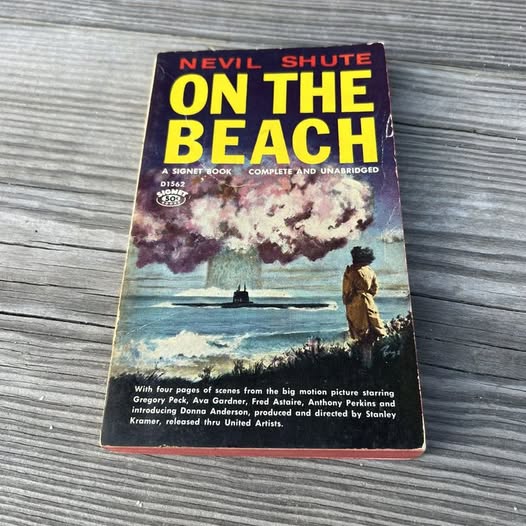Nevil Shute’s On the Beach (1957) is a quiet, devastating masterpiece that turns the apocalypse into something unbearably intimate. Set in Australia after a nuclear war has wiped out the Northern Hemisphere, it follows the last surviving people on Earth as they wait not for salvation, but for the inevitable radioactive cloud drifting slowly toward them. There are no heroes here, no last-minute reprieves, just ordinary people facing extinction with heartbreaking dignity.
A U.S. submarine captain searches for faint radio signals from America, clinging to hope even as he knows better. A young couple tries to give their baby a normal life, knowing that child will never grow old. A scientist calculates exactly how long they have left. And through it all, life goes on races are run, gardens are tended, tea is served because what else is there to do?
Shute’s genius is in the restraint. There’s no grand spectacle, no screaming panic just the slow, crushing weight of certainty. The horror isn’t in the explosions; it’s in the way people still fall in love, still make plans, still pretend they might live to see next summer. The most haunting moments are the smallest: a man planting roses he’ll never see bloom, a woman choosing the perfect dress to die in.
Written at the height of the Cold War, the novel’s power hasn’t faded. If anything, in an age of climate crises and new nuclear anxieties, it feels more urgent than ever. This isn’t just a book about the end of the world it’s about what makes life worth living when the clock runs out.


